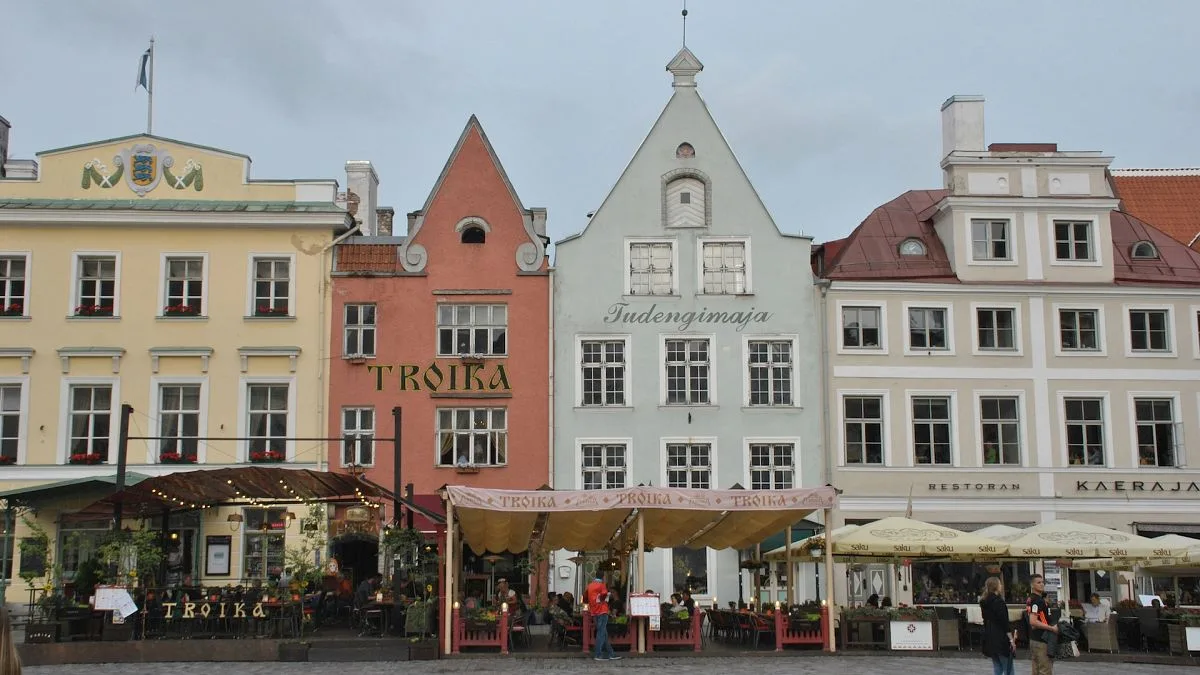The percentage of minimum wage income allocated to rent varies significantly across Europe, ranging from 35% in France to 56% in the Netherlands. In this article, we delve into the relationship between minimum wages and average rent costs in EU countries, shedding light on the financial burden facing low-wage earners.
Housing, along with essential services like water, electricity, and gas, represents the largest share of household expenditures in the EU. In 2022, these vital needs accounted for nearly a quarter (24.1%) of total household spending, highlighting their profound impact on European financial stability.
This percentage fluctuates widely among European nations and varies based on income levels. Minimum wage earners, in particular, bear a disproportionate share of these expenses, dedicating a significant part of their income to housing-related costs.
The European Trade Union Confederation (ETUC) reveals that in 14 EU member states, rent for properties with up to two bedrooms consumes at least 35% of the income of minimum wage workers. On average, these individuals expend 45% of their earnings on housing in 2024, showcasing the heavy financial strain placed on low-wage earners.
ETUC General Secretary Esther Lynch emphasized the plight faced by millions: “Many workers see a large portion of their paycheck vanish as they strive to keep a roof over their heads.”
How Much Do Minimum Wage Workers Earn? A Wide Disparity
In this analysis of 14 countries, statutory minimum wages range dramatically from €477 in Bulgaria to €2,571 in Luxembourg. Only six countries have a minimum wage exceeding €1,000, with three—Luxembourg, Ireland, and the Netherlands—surpassing €2,000.
Interestingly, Denmark, Italy, Austria, Finland, and Sweden do not have a national statutory minimum wage.
Average Rent: A Snapshot Across Europe
The cost of renting a two-bedroom property varies greatly, from €215 in Bulgaria to €1,340 in Luxembourg. The average rent across these 14 countries stands at €599.
Rent prices are below €400 in seven countries, including Bulgaria (€215), Romania (€277), Croatia (€311), Greece (€344), Slovakia (€371), Estonia (€387), and Portugal (€391). In contrast, average rents exceed €1,000 in Luxembourg, Ireland, and the Netherlands, with France averaging €618 and Spain at €578.
These rent data are derived from Eurostat’s 2022 figures, adjusted for inflation.
Rent Burden on Minimum Wage Income
The proportion of income spent on rent by minimum wage workers offers critical insights into their financial challenges. This figure fluctuates, ranging from 35% in France to an alarming 56% in the Netherlands. On average, low-wage earners across these nations allocate about 45% or 46% of their income to rent, depending on the methodology used.
Beyond the Netherlands, both Ireland (55%) and Luxembourg (52%) see over half of their minimum wage income consumed by rent. France stands as an outlier, with only 35% of income going towards housing costs, followed closely by Croatia (37%) and Greece (38%). Despite Bulgaria having the lowest minimum wages and rent, workers still spend 45% of their income on housing, a situation mirrored in Spain with a similar figure of 44%.
It’s essential to note that these benchmarks are based on national averages, while renters in urban centers often confront even steeper costs.
Understanding Household Expenditure on Housing and Utilities
Eurostat also provides valuable data that extends beyond minimum wage and rent. In 2022, household spending on housing, water, electricity, gas, and other fuels varies significantly across Europe.
Slovakia leads with over 30% of total household expenditure allocated to these essentials, followed closely by Finland (29.6%) and Denmark (29.1%). In stark contrast, Malta (13.9%) and Croatia (14.9%) dedicate a smaller share of their budgets to housing and utilities.
This expenditure encompasses:
- Actual rent payments
- Imputed rent for housing
- Maintenance and repairs
- Water supply and related services
- Utilities including electricity and gas
The proportions in the UK, a former EU member, recorded at 25.7% in 2019 further illustrate the ongoing challenges faced by households in managing housing costs.
Photo credit & article inspired by: Euronews


